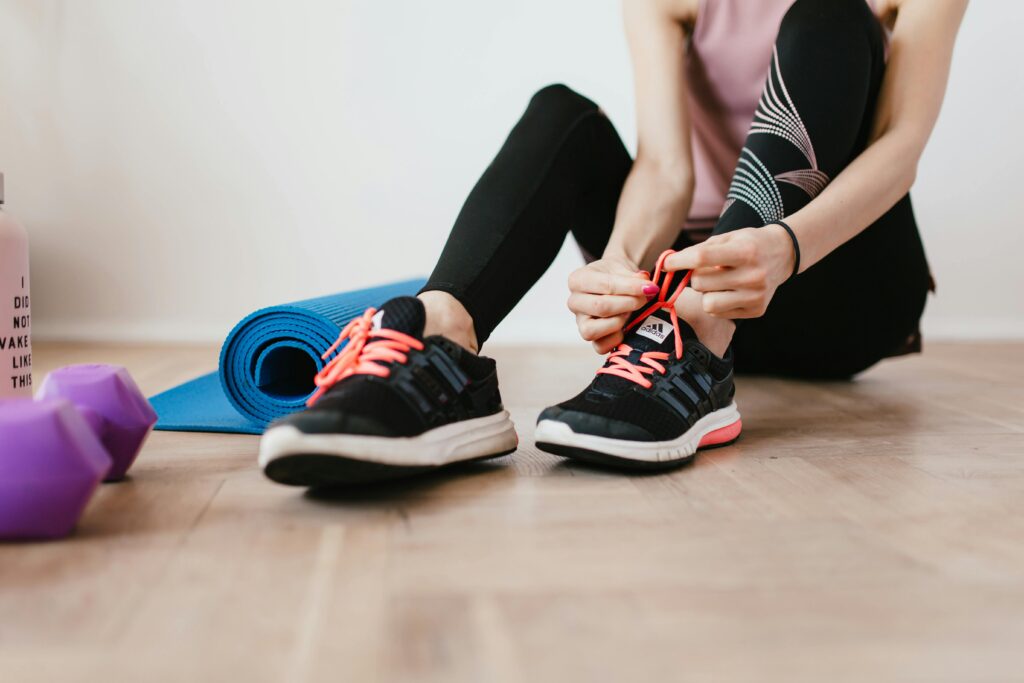Five Proven Ways to Boost Your Wellbeing
Why Wellbeing Matters
Life moves fast. You have responsibilities, deadlines, and people counting on you. In the middle of it all, your own wellbeing often gets pushed aside.
If you feel stretched thin, you’re not alone. At Wellbeing With Emil, we see it every day; people looking after others while struggling to look after themselves. You might know that self-care matters, but finding the time and energy is another story.
The good news is that taking care of yourself doesn’t have to be difficult. The NHS has identified five simple ways to improve wellbeing: Connect, Be Active, Take Notice, Keep Learning, and Give. These aren’t big lifestyle changes. They are small, practical actions that help you feel more balanced, focused, and in control.
This guide will show you how to use these five steps in a way that works for you. Whether you want to reduce stress, feel more present, or regain a sense of purpose, there’s something here for you.
Connect: Build Meaningful Relationships
Strong relationships improve mental health. The people you spend time with shape your mood, outlook, and resilience. Feeling connected reduces stress, eases loneliness, and boosts happiness.
You don’t need a huge social circle. What matters is the quality of your relationships. A quick chat, a shared meal, or checking in on someone can make a real difference.
Ways to Connect:
- Call a friend or family member just to check in.
- Arrange a walk, coffee, or meal with someone you care about.
- Join a local community group, club, or online support network.
- Eat a meal with others and keep phones away.
Why It Matters
People with strong social connections are 50% more likely to live longer and report better mental health. Take a moment today to reach out.
Want to dive deeper into how connecting with others fuels your wellbeing?
Read our full guide: Building Bridges: How Connection Fuels Your Wellbeing.

Be Active: Move Your Body, Boost Your Mind
Movement is one of the most powerful tools for mental and physical wellbeing. It reduces stress, clears your mind, and boosts energy. Exercise isn’t just about fitness. It’s about feeling strong, capable, and in control of your body. Not everyone enjoys intense workouts, and that’s okay. The key is to find movement that works for you.
Ways to Be Active:
- Take a short walk, stretch, or do some gentle yoga.
- Try bodyweight exercises like squats, push-ups, or lunges.
- Cycle, swim, or play a sport you enjoy.
- Use the stairs instead of the lift, or stand up and move every hour.
Why it matters:
Exercise changes your brain. It releases endorphins, improves focus, and helps regulate stress. People who stay active report lower anxiety, better sleep, and more confidence. Movement isn’t just good for your body, it’s essential for your mind.
Want to explore different ways to challenge yourself physically and mentally?
Read our full guide: Movement for Strength: How Exercise Builds Resilience Inside and Out.

Take Notice: Be Present and Practise Mindfulness
Life moves fast. It’s easy to rush through the day without stopping to notice what’s happening around you, or within you. When you slow down and pay attention, you become more aware of your thoughts, feelings, and surroundings. This can reduce stress, improve focus, and help you feel more grounded.
Ways to Take Notice:
- Pause and take three deep breaths before moving to your next task.
- Spend a few minutes outside and focus on what you can see, hear, and feel.
- Put your phone away when eating and pay attention to your food.
- Check in with yourself—how are you feeling right now?
Why it matters:
Research shows that mindfulness can reduce stress, improve focus, and boost emotional resilience. Being present helps you respond to life instead of just reacting to it.
Want to learn practical ways to bring mindfulness into your daily routine?
Read our full guide: Everyday Mindfulness: Simple Ways to Stay Present in a Busy World.

Keep Learning: Challenge Yourself and Grow
Learning keeps your mind active and engaged. It builds confidence, sharpens thinking, and gives you a sense of progress. Trying something new can break routine, shift your perspective, and boost your self-esteem.
Ways to Keep Learning:
- Read a book, listen to a podcast, or watch a documentary.
- Take an online course or attend a local workshop.
- Try a new hobby; cooking, music, writing, or a creative project.
- Learn a few words of a new language or read about a different culture.
Why it matters:
People who keep learning report higher confidence, better problem-solving skills, and improved mental wellbeing. Challenging your mind helps you grow and stay mentally sharp.
Looking for ways to build learning into your daily life?
Read our full guide: Lifelong Learning: How Small Daily Habits Can Keep Your Mind Sharp.

Give: Spread Kindness and Make a Difference
Helping others isn’t just good for them, it’s good for you too. Acts of kindness can boost mood, reduce stress, and create a sense of connection. Giving doesn’t have to be big or expensive. Small, thoughtful actions can make a real difference.
Ways to Give:
- Offer your time; volunteer, mentor, or help a friend in need.
- Check in with someone who might be struggling.
- Share your skills or knowledge with others.
- Express gratitude. Say thank you or acknowledge someone's effort.
- Donate what you can, whether it’s money, food, or resources.
Why it matters:
People who give regularly report higher levels of happiness, reduced stress, and stronger relationships. Kindness strengthens communities and builds a sense of purpose.
Want to explore simple ways to make giving a natural part of your life?
Read our full guide: The Power of Giving: How Small Acts of Kindness Can Improve Your Wellbeing.

Final Thoughts
Your wellbeing matters. These five steps: Connect, Be Active, Take Notice, Keep Learning, and Give, are simple but powerful. Start small, be consistent, and prioritise yourself.